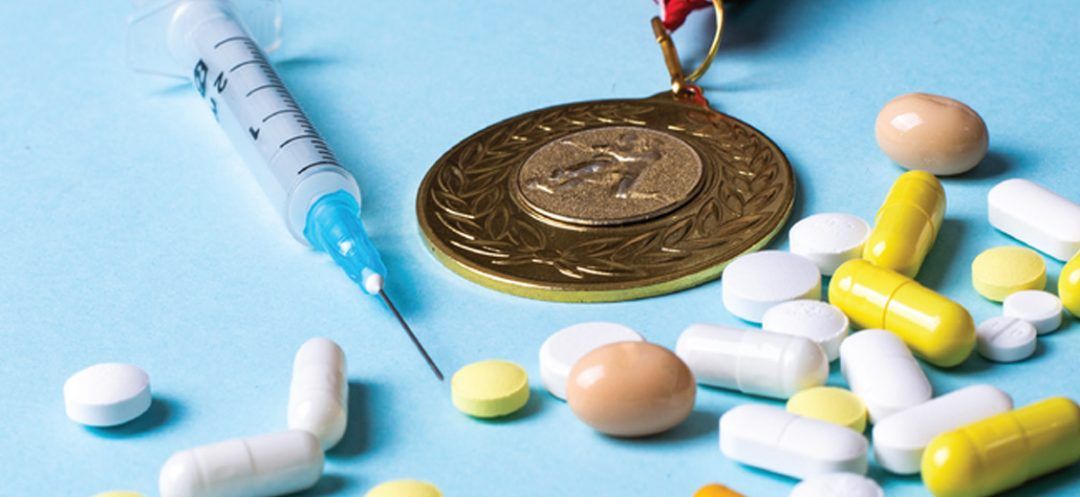
Doping in sports represents a major issue that transcends national borders and sporting disciplines. Lebanon is no exception. Over the years, this controversial practice has become a global concern, raising complex ethical, medical and societal questions.
Indeed, doping compromises the fairness of competitions, the health of athletes and the integrity of sport as an institution. From the use of illicit substances to enhance performance to genetic manipulation, doping methods constantly evolve, challenging antidoping authorities' efforts to counteract them.
Several aspects of doping will be addressed in this article, ranging from its historical origins to contemporary implications. Legal, social and ethical issues will be examined, along with strategies and measures implemented to combat doping and preserve fairness and integrity in sports on a global scale.
History
Doping in sports dates back to antiquity, where athletes used substances like wine or hallucinogenic mushrooms to enhance their performances. However, modern doping emerged in the 20th century with the advent of synthetic substances and more sophisticated methods. Notable doping cases have marked sports history, such as the anabolic steroids scandal in the 1980s and 1990s, involving numerous high-profile athletes. Since then, sports organizations have intensified their efforts to combat doping, implementing screening programs and stricter sanctions. Despite these measures, doping remains a persistent challenge in both professional and amateur sports.
A notorious example of doping in sports is Lance Armstrong, a former American professional cyclist. Armstrong won the Tour de France seven consecutive times from 1999 to 2005, making him a cycling legend. However, in 2012, the United States Anti-Doping Agency (USADA) released a damning report accusing Armstrong of using banned substances throughout his career to enhance his performances, including erythropoietin (EPO) and blood transfusions.
As a result, Armstrong was stripped of his seven Tour de France titles and banned for life from cycling competition. His case is one of the most highly publicized examples of doping in sports history.

The Two Faces of Doping in Sports: Between Temporary Gains and Devastating Consequences
Doping in sports has both positive and negative consequences for the athletes involved. On the positive side, some athletes may experience a temporary improvement in their physical performance, allowing them to compete at a higher level and win competitions.
However, this artificial enhancement is often temporary and comes with considerable long-term health risks. Doping substances can lead to a range of health problems, including organ damage, hormonal imbalances and increased risks of cardiovascular diseases.
Ethically, doping compromises the integrity of sports by creating an unfair environment where competitions are no longer based on talent, training and dedication, but on the use of banned substances. Additionally, athletes found guilty of doping are often subjected to severe sanctions, including retroactive disqualification of their results, competition suspension, and the loss of titles and medals, which can permanently tarnish their reputation and sports career.
Truth and False Accusations
Doping in sports is a complex and controversial issue, where the line between truth and false accusations can sometimes be blurred.
First and foremost, it is essential to recognize that not all doping accusations are necessarily valid. Athletes may be wrongly accused for various reasons. For example, doping test results may sometimes be falsely positive due to technical errors in sample collection or analysis.
Moreover, certain dietary supplements may contain contaminants or banned substances without the athletes' knowledge, leading to positive doping test results despite no intent to dope.
Furthermore, there are cases where athletes are accused of doping with malicious intent, often by rivals or individuals seeking to damage their reputation or career. These false accusations can have serious consequences for the personal and professional lives of the athletes involved, even if they are innocent. It is important to emphasize that doping is a real problem in the world of sports, and many cases are substantiated and warrant appropriate sanctions.
Therefore, combating doping remains a priority for sports organizations, not only to preserve the integrity of competition but also to protect the health and well-being of athletes. By adopting a balanced and objective approach, sports governing bodies can promote fair competitions while ensuring respect for athletes' rights.
[readmore url="https://thisisbeirut.com.lb/sports/268566"]
Read more




Comments